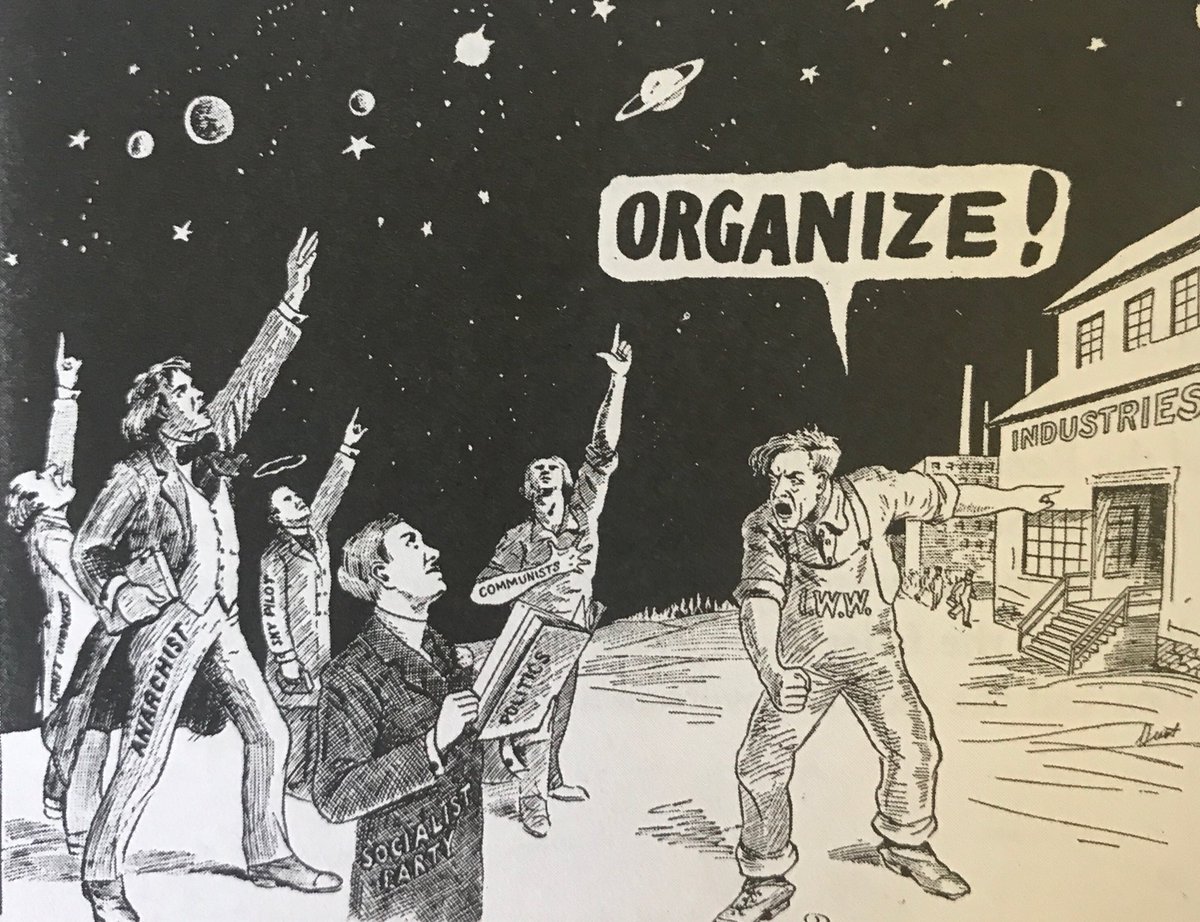this post was submitted on 05 Nov 2023
116 points (100.0% liked)
memes
22774 readers
367 users here now
dank memes
Rules:
-
All posts must be memes and follow a general meme setup.
-
No unedited webcomics.
-
Someone saying something funny or cringe on twitter/tumblr/reddit/etc. is not a meme. Post that stuff in !the_dunk_tank@www.hexbear.net, it's a great comm.
-
Va*sh posting is haram and will be removed.
-
Follow the code of conduct.
-
Tag OC at the end of your title and we'll probably pin it for a while if we see it.
-
Recent reposts might be removed.
-
No anti-natalism memes. See: Eco-fascism Primer
founded 4 years ago
MODERATORS
you are viewing a single comment's thread
view the rest of the comments
view the rest of the comments

The wobblies and syndicalists etc had this sort of cult of action. They distrusted party politics, feeling that any change would come from and on the factory floor. It makes sense why they deemed electoralism in most countries a waste of time, but they often threw out forming real discipline and developing a theory of change. Essentially look at the errors of De Leonism which was also party if the IWW, even they disagreed with the IWW's anti-party stance.
Scotland's great trade unionist, early compatriot to the IWW, and eventual head of the Communist Party of Great Britain Willie Gallacher covers the issues with these strategies really well in his autobiography of the WW1 era "Revolt on the Clyde" especially when he went to the Comintern and met Lenin. He talks about how Lenin changed his politics and made him self-crit.
I highly recommend the book, its a short read and while about very specific strikes and shenanigans and interactions, the heart of it genuinely helped me understand the strengths and weaknesses of even a strong union movement like that one in Scotland at the time. Pure unionism does not have revolutionary potential, it is the breeding group for cadres, not the other way around.